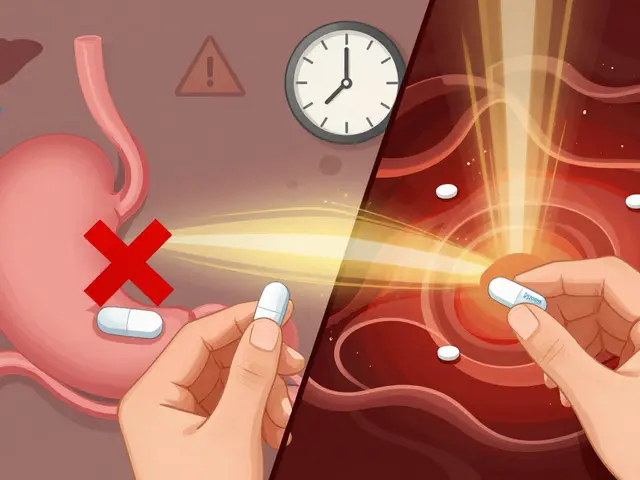Dibencozide (Cobamamide): a simple guide
If you’ve seen dibencozide mentioned online and wondered what it does, you’re not alone. Dibencozide, also called cobamamide, is a form of vitamin B12 that some people use for nerve support and energy. It’s not the most common B12 you hear about, but it shows up in supplements and some prescription products in certain countries.
Here’s what matters most: dibencozide is a coenzyme form of B12 that participates in cell metabolism. People often take it for symptoms tied to B12 problems — things like numbness, tingling, or low energy — and for nerve-related conditions such as peripheral neuropathy. That said, the evidence varies by condition, and it’s best used under a clinician’s guidance rather than as a random over-the-counter fix.
Common uses and what the science says
Doctors and supplement makers may recommend cobamamide for neuropathy, especially when B12 deficiency is suspected. Some trials and clinical reports suggest coenzyme B12 forms can help nerve symptoms, but results aren’t uniform. For diabetes-related nerve pain or chronic nerve conditions, dibencozide is sometimes part of a broader treatment plan that includes glucose control, medications, or physical therapy.
If you suspect a B12 deficiency, a simple blood test will show low levels. That’s the clearest reason to consider any B12 form, including dibencozide. Using it without checking bloodwork means you might be treating symptoms without knowing the real cause.
Safety, dosing, and interactions
Dibencozide is generally well tolerated. Side effects are rare but can include mild stomach upset or allergic reactions. Because B12 is water-soluble, excess is usually excreted, but you should still follow recommended doses on labels or your doctor’s advice. If you’re pregnant, breastfeeding, or on multiple medications, check with your healthcare provider first—some drugs and conditions influence B12 levels or its effectiveness.
A few practical tips: get blood tests before starting a supplement if you can; follow the product label or your prescriber for dose and duration; don’t expect instant results for long-standing nerve damage—improvement can take weeks to months. If symptoms worsen or new symptoms appear, stop and consult a clinician.
Want related reading? On this site you’ll find articles about nerve pain treatments, diabetes management, and safer ways to buy meds online. Try pieces like “Nerve Blocks and Injections for Trigeminal Neuralgia,” “Dapasmart: The Smart Way to Manage Type 2 Diabetes,” or our guides on buying meds safely online. Those can help you connect the dots between nerve care and safe medication choices.
If you think dibencozide might help you, talk to a clinician, ask for B12 testing, and consider reliable sources when buying supplements or prescriptions. Treating nerve issues usually needs more than one approach—testing, lifestyle, and the right medical plan matter most.

Revolutionize Your Diet with Dibencozide: The Game-Changing Dietary Supplement You Need to Know About
In my latest blog post, I delve into the benefits of Dibencozide, a game-changing dietary supplement that could revolutionize your diet. This coenzyme form of vitamin B12 plays a crucial role in boosting energy, supporting brain health, and aiding in the synthesis of DNA. It's a must-have addition to your diet that promotes overall health. So, if you're looking for ways to enhance your well-being and dietary routine, Dibencozide might just be what you need. Follow along as we explore the potential this supplement holds for your health journey.
View More




